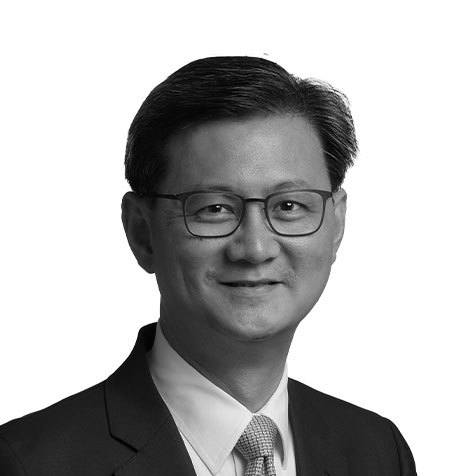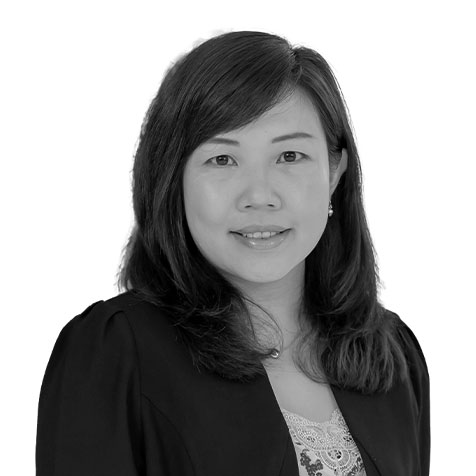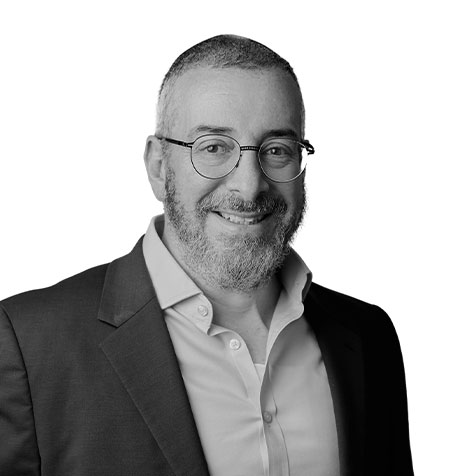Loading component...
At a glance
- The Asia-Pacific region is tipped to be the top investment location for family offices globally in the next five years, as they invest huge amounts of capital.
- Managing the generational wealth transfer is the next big challenge for family offices in jurisdictions such as Singapore and Hong Kong.
- Banks and advisers may need to rethink their services if they want to be part of the wealth-management solution for APAC families.
A quiet financial revolution is reshaping the Asia-Pacific region’s wealth landscape.
Analysis from McKinsey & Company suggests that between 2023 and 2030, high-net-worth (HNW) and ultra-high-net-worth (UHNW) families across the Asia-Pacific region (APAC) will pass on US$5.8 trillion (A$8.8 trillion) in assets.
This flood of capital will require new levels of stewardship from family members and their trusted advisers.
Managing this generational transfer of wealth is likely to contribute to a surge of new single-family offices — the privately held companies that look after a family’s financial portfolio, including estate planning, investments, philanthropy and taxes — in jurisdictions such as Singapore and Hong Kong. Deloitte Private research shows that there are already more family offices in APAC than Europe, and the region is forecast to outpace North American growth by 2030.

The bullish outlook is in line with research from global wealth manager UBS concludes that APAC will be the top investment location for family offices globally in the next five years, with more than a third of the region’s family offices planning to allocate more assets to the area.
UBS global wealth manager and head of global family and institutional wealth in APAC, LH Koh, says such trends highlight the importance of succession planning.
“The key to successful succession planning in families lies in aligning family values with governance structures, while actively preparing the next generation through education and clearly defined roles.”
Game changers: Singapore and Hong Kong
In recent years, Singapore and Hong Kong have confirmed their status as the go-to locations for UHNW individuals and families seeking to manage their wealth through single-family offices. The key driver has been their tax-friendly regimes.
In 2020, Singapore introduced a Variable Capital Company structure, in which capital gains and income generated from the investment vehicle are tax exempt.
Hong Kong introduced new tax concessions for family-owned investment-holding vehicles in 2023. The special administrative region does not tax capital gain or offshore profits, and dividend income is generally not taxable.

Karina Wong FCPA, a tax partner for EY in Hong Kong and CPA Australia’s 2025 Greater China divisional president, says the low- or no-tax policies in Singapore and Hong Kong have been game changers.
“Not only are they attracting family offices in both jurisdictions, but they also see it as a means of creating a pathway to tax residency for wealthy individuals from other jurisdictions,” she says.
Wong notes that many wealthy Hong Kong families didn’t officially run family offices in the past and are now formalising their structures. South-East Asian strongholds such as Malaysia and Indonesia (notably, Bali) are also seeking to offer tax incentives to attract family investors.
Australian growth
Australia’s family-office sector cannot match the scale of Asia, but it has experienced growth in recent years. An estimated 2000 family or private offices are operating in Australia according to KPMG, with the Baillieu and Myer families’ joint firm Mutual Trust, the Victor Smorgon Group and the Lowy Family Group among the best known.
However, new players are emerging, including Skip Capital, the family office of Atlassian co-founder Scott Farquhar and his wife Kim Jackson.

David Werdiger, a family-office consultant and author of Transition: How to Prepare Your Family and Business for the Greatest Wealth Transfer in History, says more cashed-up young Australian entrepreneurs are “hopping on the bandwagon”.
“It is driven by the weight of capital, access to opportunities not available through traditional channels and a belief that they can do it better,” he says.
However, families can go awry if they underestimate the skills required to assess and manage investment opportunities, Werdiger warns. “They often don’t have the expertise to do that, but they think they do because they are successful in other areas.”
To offset such risks, Werdiger says it is important to understand the purpose of the family office and, in turn, let that objective drive form and function.
Taking cues from Asia
The Middle East is another family-office leader, drawing from the Asian blueprint of tax breaks and minimal red tape to create a tax-efficient and business-friendly market.
Dubai and Abu Dhabi in the United Arab Emirates (UAE) are now home to maturing family offices that are embracing more institutionalised governance while increasingly hiring expertise to boost their capabilities.
Ralph Khoury FCPA is the Dubai-based CFO of Nissan United, an Omnicom global communications agency dedicated to servicing Nissan. He is responsible for the company’s Africa, Middle East, India, Europe and Oceania operations, and says family-office lessons have been learnt from Europe and Singapore, especially.
"If they are to be inheritors or stewards of significant family wealth, heirs do need to have a minimum of financial knowledge — and that can be challenging because not everybody has that acumen."
“I wouldn’t say that Dubai has modelled itself on Singapore’s family offices, but it has watched and observed the success of Singapore and said, ‘We could mirror and perhaps even do better than Singapore given our proximity to Europe, to Asia, to India and to Africa,” he says.
He credits the Dubai International Financial Centre, a finance hub and an independent free zone, with laying down smart rules and regulations for investment in the Middle East. These parameters provide surety for international investors and family offices, given they follow the common-law framework and operate in English.
“This provides comfort that things are being dealt with in a way that you can govern your business, your investments and your portfolio in the right way.”
The impact on banks and asset managers
Banks and multi-family offices have, in the past, taken the lead in serving APAC’s UHNW families. However, single-family offices that serve just one family are likely to gain favour due to the high level of customisation and control they offer.
While such changes may threaten the role of external banking and asset management services, there are opportunities for banks, insurers, asset managers and legal advisers that offer cost-effective, personalised and automated advice.
Some WealthTech companies are also thriving as they deploy innovative technologies that enhance the delivery of financial services and improve customer experiences.
Koh believes wealth management experts will continue to play a crucial role in assisting families with their financing, philanthropic and sustainable investment functions, while helping the new wave of family members align their personal values with a family legacy.
“By fostering financial literacy, leadership skills and a shared sense of purpose across the family, family offices can ensure longevity and success for their future leaders,” he says.
To prepare the rising generation of family members, Werdiger agrees that financial education and understanding will be important. “If they are to be inheritors or stewards of significant family wealth, heirs do need to have a minimum of financial knowledge and that can be challenging because not everybody has that acumen.”
"The key to successful succession planning in families lies in aligning family values with governance structures, while actively preparing the next generation through education and clearly defined roles."
He suggests starting that education as soon as possible to ensure heirs understand the purpose and values of their family office.
Although a single-family office may be suitable for UHNW families, Werdiger recommends a “virtual family office” model for those with A$100 million to A$500 million of investible net assets, whereby investment professionals are paid on a part-time or contract basis.
“If it’s a virtual team, you’re more nimble and more flexible,” he says. “These individuals come from a very strong investment background and can be virtual adviser or chief information officer to a dozen families or more. This way, you’re tapping into their experience across other families.”
Compared with their North American and European counterparts, APAC family offices are typically younger and more likely to feature first- or second-generation wealth holders.
Given the longer history of American and European family offices, Wong admits that APAC counterparts may lack the long-established governance frameworks seen in the West and be less focused on compliance.
She expects the gap to narrow in the coming years as APAC family offices respond to increasing complexity of asset allocation, tax, estate and philanthropic planning.
At the same time, Wong predicts there may still be some ongoing reticence among Asian families to hand over too much control to external advisers. “The mindset of Asian families is to have control, and it is not always easy to find someone who can fit into the family culture, understand the business and provide coaching to the next generation.”
Do Australia's sophisticated investor rules need a rethink?
No turning back
What seems clear is that APAC’s family-office boom is not a fleeting trend, but a structural shift.
As significant wealth moves into new hands, the decisions being made in offices across the region will influence financial, philanthropic and technological investments for decades to come.
Khoury believes financial security — whether it is in the Middle East, Asia or elsewhere — will continue to be a strong theme as family offices weigh up where and in what to invest.
“Dubai, for example, has become a safe haven for people to get away from conflict and to try to build wealth,” he says. “Everybody ultimately wants the best for their family.”
"The mindset of Asian families is to have control, and it is not always easy to find someone who can fit into the family culture, understand the business and provide coaching to the next generation."
Wong says that given the scale of APAC wealth, it will be essential for governance protocols and regulatory requirements to stay up to speed in Hong Kong and beyond. “Think of cryptocurrencies — you need to have proper governance of these investments, as well as appropriate obligations to make sure that the family office runs properly,” she says.
Amid fears of an ongoing trade war and geopolitical risks in the next year, Koh urges family offices to team up with their wealth managers to ensure their portfolios are diversified and have an “all-weather strategic asset allocation to stay resilient during these volatile times”.
Werdiger agrees, noting that unpredictable external factors are often lurking in the background. “Volatility comes and goes, and will always be around,” he says. “So being aware of macro investment issues and the risk of market dislocations is important at any time.
“The starting point is to make sure you have a very high-level view of risks across your entire investment portfolio.”
Tracking the investment flows
APAC’s family offices are increasing their private capital allocations, along with investments in areas such as clean energy infrastructure, tech startups and education platforms.
The UBS Global Family Office Report 2025 indicates that global family offices are most likely to have clear investment strategies for emerging technologies, especially those related to healthcare and/or medicine, electrification and generative artificial intelligence.
Investments across APAC (excluding Greater China) are on the rise, reflecting growing confidence in the region’s long-term prospects [see graphic]. At the same time, the report states that many family offices are maintaining a strong anchor in developed markets.
“These results indicate a regional rebalancing of capital flows. Family offices are diversifying their allocations across markets and asset classes, aligning with our recommendations,” says UBS’s head of global family and institutional wealth in APAC, LH Koh. “We’ve seen similar trends among our clients as they seek to diversify their portfolios like never before amid market volatility.”
Karina Wong FCPA, a tax partner for EY in Hong Kong and CPA Australia’s 2025 Greater China divisional president, says APAC family offices, including in Hong Kong, are supplementing traditional asset classes such as property with a greater injection of capital into alternative investments related to cryptocurrencies, AI, art, and environmental, social and governance programs. “Diversification is definitely the trend,” she says.
Some family offices are also operating out of multiple markets to tap into broader investment opportunities, she adds. “They may have dual family offices, maybe one in Europe and one in Asia, and even a third office in Dubai or [elsewhere in] the Middle East.”
Here's where family offices plan to invest in the next 5 years.
| APAC (excluding Greater China) | 35% |
| North America | 32% |
| Western Europe | 21% |
| Greater China | 19% |
| Middle East | 13% |
| Latin America | 6% |
| Africa | 4% |
| Eastern Europe | 3% |

